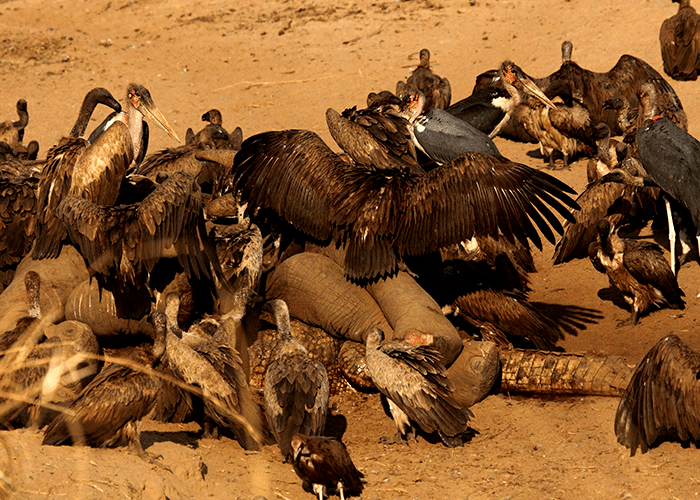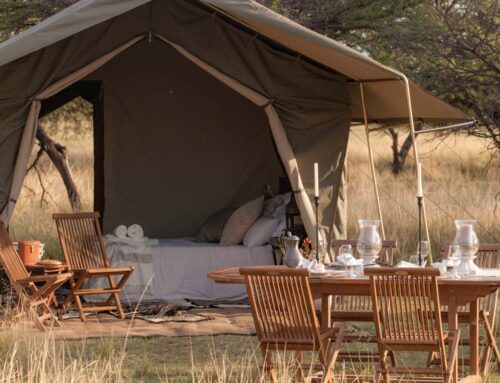Mysterious Elephant deaths in Botswana
Botswana is home to one third of Africa’s rapidly declining elephant populations, which then allows cause for concern when large numbers of elephant carcasses were being spotted throughout the Okavango Delta this year between the months of May and June 2020. Officials are saying the total of individuals accounted for now stands at 356. They are believed to have died from ingesting Cyanobacteria.
For months, cause of the elephant deaths remained a mystery causing conservationists and biologists to worry as the already dwindling numbers may potentially decline further. With the world already in a state of global panic and unease with the current coronavirus outbreak as well as the ongoing global lock-down, it was imperative to find the cause for the sudden deaths as well as determine if it was species specific or transferable to other species such as Homo sapiens ie. mankind, If the results showed the latter to be true then we as people would have another potentially deadly disease to be concerned about.
Now that scientist have been able to determine that cyanobacteria are the cause for Botswana’s mysterious elephant deaths, some important questions remain such as :
Does this pose any threat to the human population? If so, how and why will it affect us? This also leaves us wondering how this will effect the tourism industry in Botswana and thus the country’s economy.
First things first, what is Cyanobacteria?
Cyanobacteria are a toxic bacteria which can occur naturally in water that is stagnant or still standing. They can sometimes grow into large blooms known as blue-green algae and can be seen from an aerial view. Scientist warn that global climate change may be making these incidents known as toxic blooms become more regular and likely to occur as they favour warmer water.
After months of tests conducted in specialist labs in South Africa, Canada, Zimbabwe and the USA. It was found that many elephant carcasses were discovered near watering holes, however, wildlife authorities were reluctant to believe that bacteria was the cause as the blooms and algae build up appears around the edges of the ponds and elephant behavior suggests they prefer to drink from the centre of the pond thus they shouldn’t into contact with the contaminated cadges of the water.
The department of wildlife and national parks stated that their most recent tests detected Cyanobacterial neurotoxins to be the official cause of death. The deaths appeared to cease towards the end of June 2020 as this then coincides with the drying of the pans thus less available still standing water leaving only the main river channels with the remaining free flowing water.
Reports in June noted that the tusks had not been removed from any carcass, thus eliminating poaching as a suspicion and a likely cause of death. Anthrax poisoning had also been ruled out as it isn’t species specific thus other mammals and large herbivores such as Kudu and Giraffe would have also been affected and discovered among the dead. There are still many questions left unanswered, such as why were only elephants affected? Why only that area of the Delta? What does this mean for the future elephant numbers and will it happen again? Will tourism be affected by this and if so how? There are a number of hypothesis being investigated but unfortunately this takes time and requires funding.
It is important to note that people can also be exposed to Cyanobacteria toxins by dinking or bathing in contaminated water. Symptoms include skin irritation, stomach cramps, vomiting, nausea, diarrhoea, fever, sore throat and headaches. Animals such as birds and fish can all be poisoned by high levels of toxin producing cyanobacteria.
No more elephant deaths have been reported as of late due to water holes drying up thus decreased chances of cyanobacteria poisoning. We’ll have to wait and see till next rainy season if this will become a recurring issue of if it was a once off phenomena.
LUXURY CAMPING & ACCOMMODATION
BOTSWANA MOBILE SAFARIS
THREE TYPES OF MOBILE SAFARI





